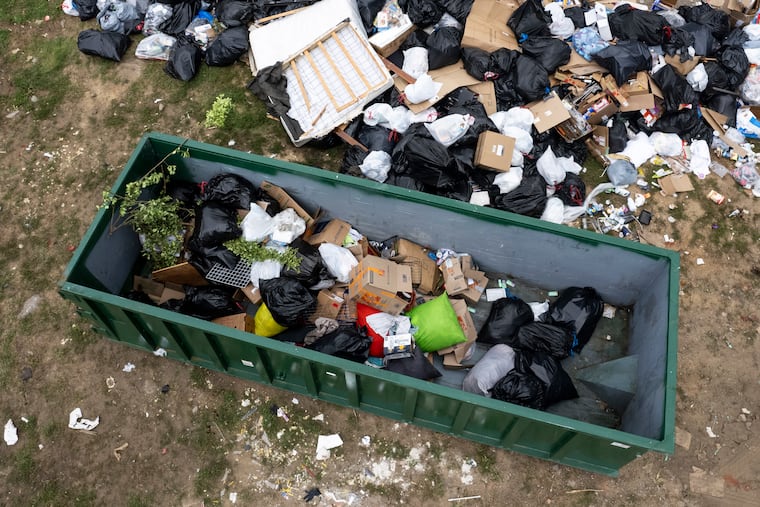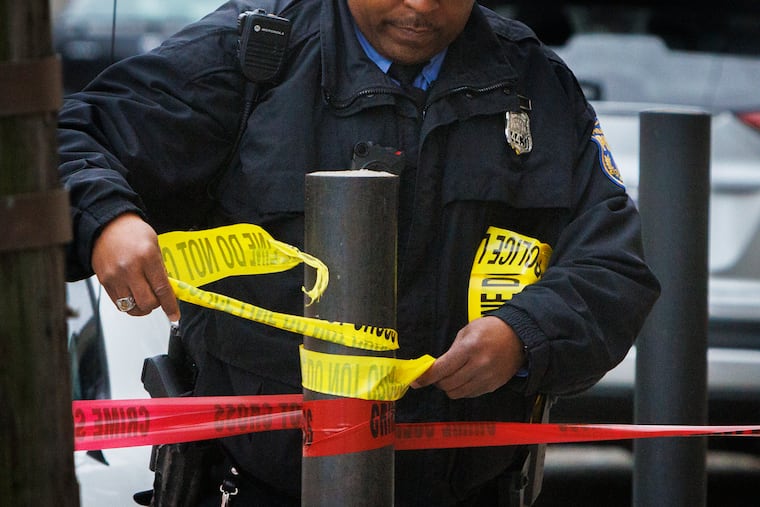Trash piles up and tensions rise as negotiations between DC 33 and city officials are set to resume on Tuesday.
Mayor Cherelle L. Parker has remained notably absent from public engagements on the seventh day of a significant strike by District Council 33 of the American Federation of State, County, and Municipal Employees (AFSCME), the largest municipal union in Philadelphia. This strike, marking the first in nearly four decades, has raised pressing concerns among city residents regarding sanitation services and the increasing piles of uncollected trash.
Members of AFSCME have expressed their frustration through chants highlighting the city’s deteriorating cleanliness, particularly at a Port Richmond sanitation convenience center, where a recent incident involving a reckless driver injured two picketing workers. The strike comes amid stalled negotiations between the city and the union, escalating tensions and further complicating an already fraught situation.
In response to the growing trash crisis, city officials, including Carlton Williams, the director of the Philadelphia Office of Clean and Green Initiatives, conducted a news conference in South Philadelphia, promoting a temporary drop-off site for waste. Williams urged residents to use these facilities responsibly in order to mitigate the unsightly accumulation of garbage, now colloquially termed “Parker piles.” He emphasized the importance of keeping the dumpsters clear of unauthorized items to facilitate efficient waste collection.
Amid calls for cooperation, Williams also highlighted illegal dumping issues, citing a recent incident in Logan where a business was arrested for disposing of rotten chicken at a drop-off site. Violators could face fines of up to ,000 per incident, underscoring the city’s commitment to maintaining public health standards.
Activism surrounding the strike has intensified, with groups like Sunrise Movement staging protests at City Hall. Demonstrators symbolically delivered trash to the mayor’s office to draw attention to the garbage issue plaguing low-income neighborhoods, while demanding action on the strike situation.
Negotiations between DC 33 and the city appear stagnant, with no talks scheduled on the latest developments. Union leadership has criticized the city’s approach to negotiations, describing it as counterproductive, and indicating that progress has been hindered by lackluster engagement from the administration.
As the labor dispute continues, members of DC 33 advocate for higher wages, currently averaging ,000 annually. The union remains determined, vowing to seek fair terms, while city officials consistently assert their commitment to addressing public health concerns amid the ongoing strike. Negotiations are expected to resume soon, though the path forward remains uncertain for both city management and union representatives.
Overall, this pivotal strike reflects broader challenges facing municipal governance in Philadelphia, as the city grapples with the dual issues of labor relations and public health amid rising discontent among its workforce. The outcome of these negotiations will play a critical role in shaping the future of municipal services in the City of Brotherly Love.
Media News Source







